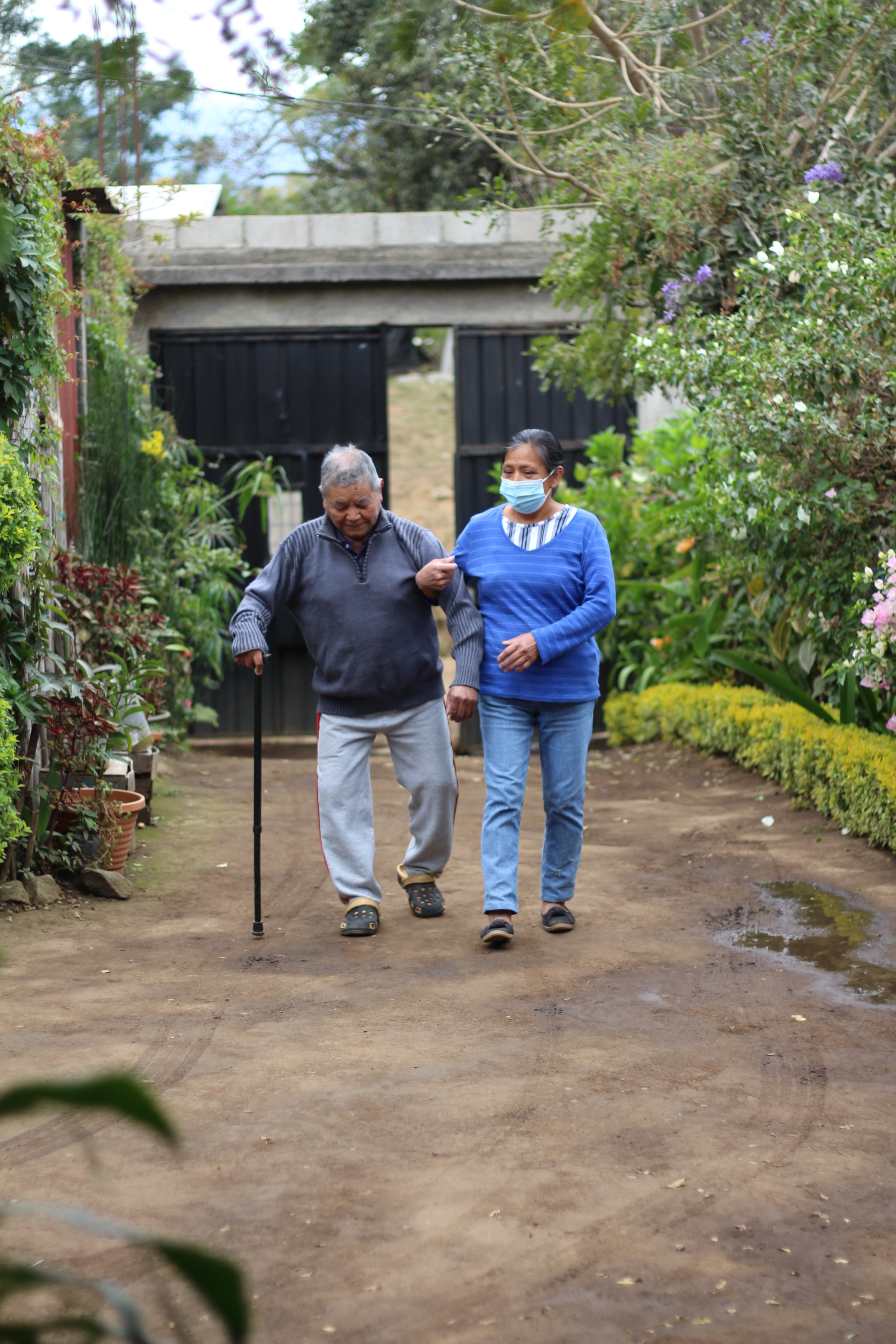Ella Roberts
Auri, 52, stepped outside of her home into the somewhat decelet streets of San Juan del Obispo, where children run freely with no parents in sight. In her hands she carried pots filled with beautiful flower arrangements. She set down the box holder, and the cardboard screeched against the concrete ledge where we were waiting. We had just sat down outside of a music school in San Juan del Obispo, where we had made later plans to interview a source for another story.
“Ay!” yelled Tefi, one of our Guatemala reporting partners. Both Matt and I jumped as we looked over our right shoulders to see Aurí. Despite our over exaggerated reactions, Aurí welcomed us with warm eyes behind her mask, a small giggle and a “lo siento.” Immediately, Tefi picked up a conversation, explaining to Aurí what we had been doing sitting outside of her home.
Although I was unaware of what was being said, I knew a connection was being made. Little did we know, we had just met a woman who would share one of the most moving stories we had heard yet, all by chance.
Later that day we would find ourselves following auri down the street towards her brother’s “greenhouse” as she called it, which served as a vineyard where members of the family worked serving tourists different drinks prepared with the fruit nispero. We would also meet her 3 nieces, Guadalupe or Lupita, Sophie and Jasmine, who’s mother had passed away during the pandemic.
At first, the girls were sheepish, unsure of what to think of what these three people in matching green shirts with cameras and notepads were doing at their families home. However, the more time we spent together, the more the girls started to warm up to us. Soon, they were climbing trees, doing cartwheels and giggling with each other. They knew they were photogenic to say the least.
While all of this was happening, we were being introduced to Don Gregorio, Auri’s father. We captured a moment with these two, that in my opinion, speaks volumes about the family unit they have built even through despair and tragedy. In the photo Auri supports her father on one side of his body while he uses a cane on the opposite side as they walk towards us all while being surrounded by a luscious garden the two have grown together over the years. It was a beautiful moment.
Aurí sat her father in a white plastic chair as he proceeded to tell us about his late wife whom he loved dearly, and how the niserpo business was a dream of theirs they shared. He also gave us tips on how to grow the best flowers, which included no chemicals and compost as soil.
Gregorio is the one who taught Aurí everything she knows about flowers. Her green thumb is what she would rely on to provide for herself after losing her job to covid.
“I became very sad when covid happened. I lost my job and my dad is old, so he cannot work. Sometimes we have to share food amongst our family when the other's don't have enough to survive."
Auri also shared with us that this year's harvest was not plentiful enough to provide for the family. So, she must rely on Estuardo, her disabled son who builds wheelchairs in Antigua and plays on a basketball team.
Although we had yet to meet Estuardo, by the time we parted ways that day, we had already been invited to his game that upcoming Friday and welcomed to the nispero plantation the next year around, when the harvest would be better so that we could pick our own fruit. The hospitality and generosity of this family after just having met us two hours ago was beyond humbling. Over and over we were thanked for our time.
Experiences like this serve as a reminder that language is not an excuse. It is not a barrier that needs to be overcome. Love is a universal language and it is the first step in breaking those cultural barriers.

